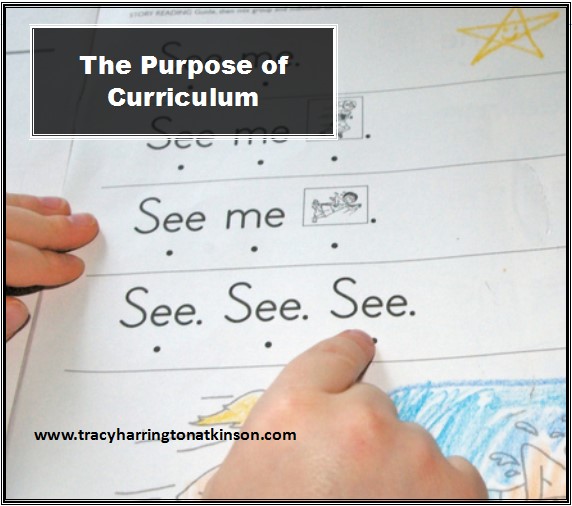Purpose of Curriculum and Content
by Tracy Harrington-Atkinson
Daily thousands of students sit in classrooms across America at the feet of educators who possess great fountains of knowledge. Our youth start their education, for the most part, excited to learn, grow and apply something new when in actuality they often are greeted with worksheets and activities involving rote memorization. This is not to say that all teachers function in this manner on a daily basis yet rather many times our instructors are forced into these situations where they must focus on content rather than individual student development.
I appreciate the words of Derek Bok, former President of Harvard University, in regards to curriculum development:
“By not paying careful attention to purposes (of curriculum), faculties have also ignored the important aim of undergraduate education over extended periods of time. . . . Most colleges fail to make any deliberate, collective effort to prepare their students to be active, knowledgeable citizens in democracy, even though civic apathy and ignorance of public affairs are widely regarded as serious problems in America.” Bok continues by stating the purpose of curriculum, “No program can be evaluated properly without a common understanding of what it is supposed to achieve. . . . No one (faculty members) remembers very clearly why they (curriculum choices) were invented in the first place or what purpose they were meant to serve” (Bok, 2006, pp 39-40).
I am not going to enter into a philosophical conversation on topics, subjects, content or necessary knowledge for the next generation. This is not to say I don’t have an opinion as I hold my opinion most dear. I witness my children suffer (I emphasis this verb –suffer.) through long monotonous days of supposed learning. Each of my children have expressed finishing work quickly and having substantial amounts of class time to dawdle away, read or simply daydream. At other times, they’ve struggled with new information, ill-equipped with essential skills to integrate material into existing knowledge schemas.
Why does this happen? Because we have lost the true purpose of curriculum. Which is what? Curriculum and content should be used to teach our students indispensable lifelong learning skills.
Source:
Bok, D. (2006). Our underachieving colleges. Princeton: Princeton University Press.
Tracy Atkinson, mother of six, lives in the Midwest with her husband and spirited long-haired miniature dachshunds. She is a teacher, having taught elementary school to higher education, holding degrees in elementary education and a master’s in higher education. Her passion is researching, studying and investigating the attributes related to self-directed learners and learning styles. She has published several titles, including MBTI Learning Styles: A Practical Approach, The Art of Learning Journals, Calais: The Annals of the Hidden, Lemosa: The Annals of the Hidden, Book Two, Rachel’s 8, The Personal Pursuit of Perfection and Securing Your Tent. She is currently working on a non-fiction text exploring the attributes of self-directed learners: The Five Characteristics of Self-directed Learners.



Comments are closed